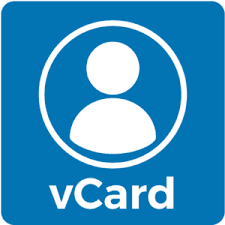For the Majority of people buying a home, getting a mortgage is a challenging part of the home buying process. But even today, there are many options for financing your new home. This page will help simplify the mortgage process and answer some of your most frequently asked questions.
Get Pre-Approved: The How's and the Why's...
Getting pre-approved is especially important for first time home buyers but it is something that anyone who is embarking on a house hunt should complete. Pre-approval basically consists of contacting a mortgage professional and giving them both some financial and personal information. You will also discuss what kind of monthly payment you can afford and how much you are putting down on your future home. They will then get you "pre-approved" with a lender for your maximum allowable mortgage amount with a particular lender. Getting pre-approved is important so that you know what kind of price range you can afford, and you will not waste time looking at homes you cannot afford. When you finally find a house, a pre-approval letter can show the seller that you are serious and pre-qualified to purchase the house they are selling.
Debt To Income
One of the things that any lending institution will consider when getting a borrower pre-approved is there D.T.I. (Debt To Income Ratio). This ratio shows the lender how much of your income is available for a mortgage payment. Many conventional loans use the ratio 28/36. A typical FHA loan uses the ratio 29/41.
The 28 is the percentage that a lending institution allows for both your housing expenses and your requiring debt. Examples of requiring debt are: credit cards, car loans, alimony, child support, and any other longer-term financial responsibility.
- To figure this out your monthly income: Take your gross yearly income and divide by 12.
- Take you monthly income and multiple by .28
- Take your monthly income and multiply by .36
The difference between Pre-Qualified and Pre-Approved: The difference between Pre-Qualified is where you give a mortgage professional a hypothetical set of credit scores, income, debt ext. and they tell you what an average borrower you have described would qualify for. Pre-approval is when the loan officer actually pulls your credit and reviews your income and assets and says what you personally should be approved for. The loan officer then puts this into a letter form for you to be able to submit to a lender.
Typical Buyer's Fees
- Loan origination fee, usually 1% of your mortgage amount
- Discount point or points, each ususally 1% of your mortgage amount
- Assumption fee (if you assume the sellers old mortgage)
- Title search fee
- Lender's title insurance fee
- Owner's title insurance fee (optional but advisable)
- Survey fee (if applicable)
- Two fees that may have been paid when you applied for the loan:
- *Appraisal Fee
- *Credit Report Fee
- Doc preparation fees
- Recording fees
- Prepaid interest on your mortgage, covering the time between settlement and the first regular monthly payment
- Prepaid mortgage insurance premium (if applicable)
- Property tax, possible reimbursement to seller and/or payment on future taxes
- Assessment, possible 1 to 3 month local improvement charge or association fee (especially applicable to condominium buyers)
- Lawyers' fees (if applicable)

